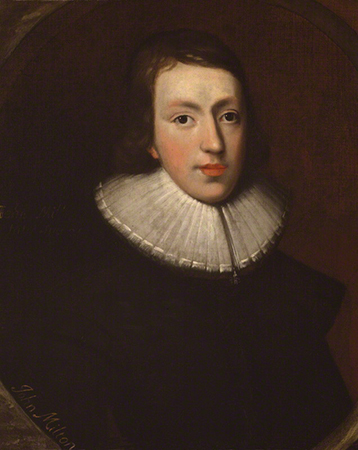|
Following successful completion of this lesson, students will be able to:
- read an 18th Century epic poem
- identify allegorical allusions in a work of literature
- cite textual evidence to form an opinion of a character
- compare and contrast two relevant characters in a poem and a play
The above objectives correspond with the following Alabama Course of Study Objectives:
CCRS 1Cite strong and thorough textual evidence to support analysis of what the text says explicitly as well as inferences drawn from the text.,
CCRS 2Determine two or more themes or central ideas of a text and analyze their development over the course of the text, including how they interact and build on one another to produce a complex account; provide an objective summary of the text.,
CCRS 3Analyze the impact of the authorís choices regarding how to develop and relate elements of a story or drama (e.g., where a story is set, how the action is ordered, how the characters are introduced and developed).,
CCRS 7Analyze multiple interpretations of a story, drama, or poem (e.g., recorded or live production of a play or recorded novel or poetry), evaluating how each version interprets the source text. (Include at least one play by Shakespeare.),
CCRS 8Demonstrate knowledge of foundational works of European literature with a concentration in British literature, including how two or more texts from the same period treat similar themes or topics. ,
CCRS 9By the end of Grade 12, read and comprehend literature, including stories, dramas, and poems, at the end of the Grades 11-College and Career Readiness (CCR) text complexity band independently and proficiently. ,
CCRS 19Write arguments to support claims in an analysis of substantive topics or texts, using valid reasoning and relevant and sufficient evidence. ,
CCRS 19aIntroduce precise, knowledgeable claim(s), establish the significance of the claim(s), distinguish the claim(s) from alternate or opposing claims, and create an organization that logically sequences claim(s), counterclaims, reasons, and evidence. ,
CCRS 19bDevelop claim(s) and counterclaims fairly and thouroughly, supplying the most relevant evidence for each while pointing out the strengths amd limitations of both in a manner that anticipates the audience's knowledge level, concerns, values, and possible biases. ,
CCRS 22Produce clear and coherent writing in which the development, organization, and style are appropriate to task, purpose, and audience. (Grade-specific expectations for writing types are defined in standards 19-21 above.),
CCRS 23Develop and strengthen writing as needed by planning, revising, editing, rewriting, or trying a new approach, focusing on addressing what is most significant for a specific purpose and audience. (Editing for conventions should demonstrate command of the first three standards in the Language strand in Grades K-12.),
CCRS 24Use technology, including the Internet, to produce, publish, and update individual or shared writing products in response to ongoing feedback, including new arguments or information.,
CCRS 27Draw evidence from literary or informational texts to support analysis, reflection, and research.,
CCRS 27aApply Grade 12 Reading standards to literature (e.g., -Demonstrate knowledge of foundational works of European literature with a concentration in British literature, including how two or more texts from the same period treat similar themes or topics),
CCRS 29Initiate and participate effectively in a range of collaborative discussions (one-on-one, in groups, and teacher-led) with diverse partners on Grade 12 topics, texts, and issues, building on othersí ideas and expressing their own clearly and persuasively.,
CCRS 29aCome to discussions prepared, having read and researched material under study; explicitly draw on that preparation by referring to evidence from texts and other research on the topic or issue to stimulate a thoughtful, well-reasoned exchange of ideas.,
CCRS 29cPropel conversations by posing and responding to questions that probe reasoning and evidence; ensure a hearing for a full range of positions on a topic or issue; clarify, verify, or challenge ideas and conclusions; and promote divergent and creative perspectives.,
CCRS 29dRespond thoughtfully to diverse perspectives; synthesize comments, claims, and evidence made on all sides of an issue; resolve contradictions when possible; and determine what additional information or research is required to deepen the investigation or complete the task.,
CCRS 35Demonstrate command of the conventions of Standard English grammar and usage when writing or speaking., and
CCRS 36bSpell correctly.. |
Introduction
“Thou canst not touch the freedom of my mind.”
~Milton
John Milton is best known for his epica long poem Paradise Lost. It took Milton ten years to write his twelve-book epic poem; he published the poem in 1667. There are approximately ten thousand lines of verse. That is a long poem!
Don’t worry; we are not reading it in its entirety. However, you will be comparing and contrasting one of Milton’s characters to one of Shakespeare’s characters at the end of this lesson.

